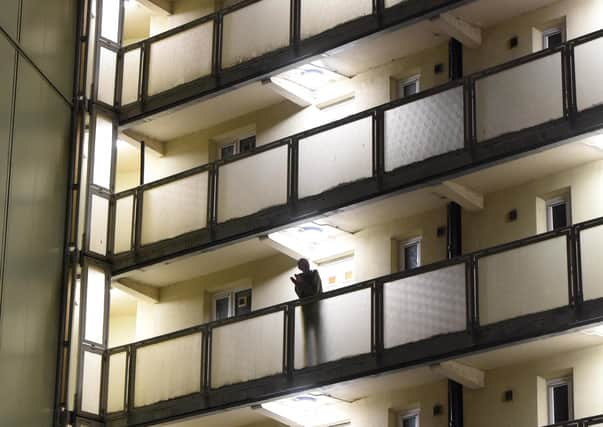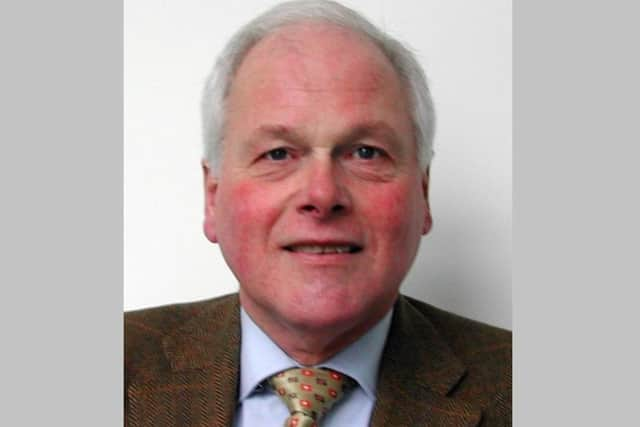We need a proper public debate about whether the harm of Covid-19 justifies the cost of lockdown and closing down an entire economy


But what I really appreciate is how calm and peaceful it is outside, especially with the sun shining, almost no traffic and few people on the streets.
That said, I am also lucky in having a very nice home, with a good garden in a leafy suburb and a steady work pension.
Advertisement
Hide AdAdvertisement
Hide AdHowever, spare a thought for those not so lucky and with no garden or nice leafy suburb, also those not feeling secure in returning to a job or restarting a business once we are unlocked.


This latter is an increasingly serious point since there is a growing tendency to see unlocking in terms of an economy versus health choice.
The two are irretrievably entwined.
First, lost jobs and businesses do cost lives, not dramatically in a sudden endemic.
It kills just as surely over a period of time and also eats up expensive health, social and welfare services that we may need to help fend off the next pandemic.
Advertisement
Hide AdAdvertisement
Hide AdSecond, the economy is what pays for our health, social and welfare services.
Poor economy means fewer resources both in terms of increased demand for those services whilst concurrently implying a lower tax yield and hence lower income stream for those services we are now so appreciative of.
Of course it must be gratifying for those concerned to see all the public appreciation, on a Thursday evening, for their services.
However, I cannot help wondering just how long this will last after the emergency is over.
Advertisement
Hide AdAdvertisement
Hide AdHow many will vote for higher taxes to pay for better services, especially social welfare which takes such a burden off the NHS?
How many tax dodgers in off-shore funds will volunteer to repatriate their billions to pay tax on it to maintain the NHS?
What effort by our politicians and civil servants to clean up their act and ensure no more RHI scandals so that the money saved can go into better care and health facilities.
Fewer £85,000pa Spads and more nurses or bio-medical scientists might be a good start, then we would also need fewer multi-million pound inquiries. Quiz our politicians, now that they are back, on that one.
Advertisement
Hide AdAdvertisement
Hide AdMeanwhile, we still have to deal with the current pandemic, and here I wish to raise a, not unrelated, serious question: just how serious is the current pandemic?
I am not trying to trivialise, but deaths happen all the time, it’s normal.
Thus the question arises of: how big an increase in deaths over the normal rate is currently occurring? Here one has to turn to the statistics, which are always difficult to analyse adequately, hence imperfect, but all that the decision takers have to go on.
Working from the Office of National Statistics for England and Wales, week ending 27th March, 2020 (the week Covid-19 took off): 4.2% (188) deaths in the over 85 bracket involved Covid-19: in 65-84 bracket it was 5.5% (99): meanwhile no Covid-19 deaths were recorded in the under one and 1-4 age groups.
Advertisement
Hide AdAdvertisement
Hide AdMeanwhile, the total number of Covid-19 deaths was 539, out of a total of 11,141 deaths (all causes), thus 287 Covid-19 deaths (over 50%) were in the age group 65+.
Meanwhile, 18.8% of all deaths mentioned ‘influenza or pneumonia’ (a well understood respiratory cause of death), Covid-19 or both.
By comparison, the previous five year average for deaths involving influenza and pneumonia was 19.6%.
The foregoing is just an example of the kind of figures decision makers will have to grapple with.
Advertisement
Hide AdAdvertisement
Hide AdFirst this seems to be a virus that particularly affects the elderly and those with underlying respiratory conditions.
When placing Covid-19 related deaths in perspective, the majority appear to affect those who have already reached, or nearly, the modern average life expectancy (85 for females, 78 for males). More recent data since that cited above confirms that the median age of people who die is over 80.
Is it just that a new disease is carrying us off rather than an old one?
If that is the case, then what is the justification for closing down an entire economy, which will also involve many premature deaths, perhaps of much younger and potentially more productive people.
Advertisement
Hide AdAdvertisement
Hide AdThis is not an easy or comfortable question, and I am not proposing any answer, but it is one that needs asking and should be the basis for proper public debate, both in the media and politically.
As the News Letter editorial (‘The world’s oldest daily newspaper is reporting this pandemic as it has reported other global health crises over the centuries,’ April 2) reminds us, in 1738 130,000 died from plague in Constantinople – that would cause panic, but we should not.
Covid-19 is serious, but just how much in the great scheme of things has yet to be fully appraised and we need to keep calm and, especially, think rationally of how and where we limit the worst effects.
• Dr James Dingley is chairman of Francis Hutcheson Institute